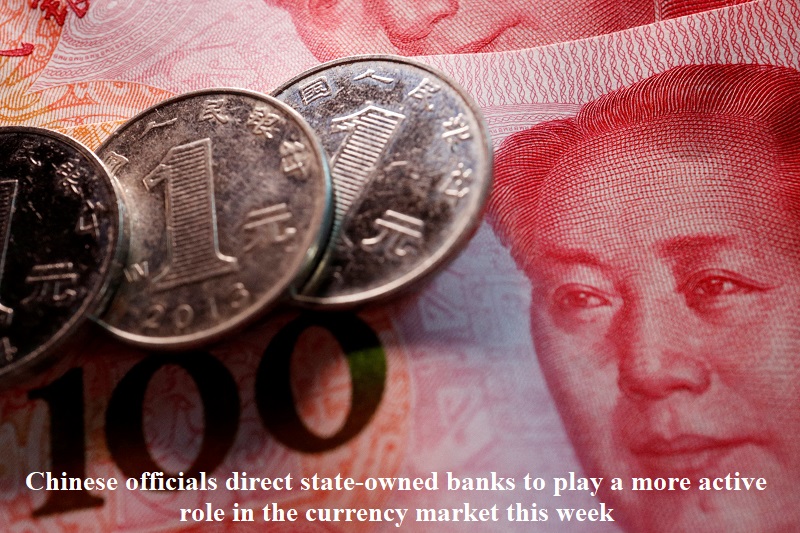
According to a Bloomberg report, Chinese authorities have instructed state-owned banks to take a more proactive role in the currency market this week to prevent excessive volatility in the yuan’s value, as the yuan recently depreciated to around 7.35 per US dollar.
Insiders from Bloomberg sources have indicated that senior Chinese officials are contemplating the option of reducing foreign exchange reserve requirements for banks in order to counter the depreciation of the currency. They are also investigating whether domestic companies contributed to the yuan’s decline by trading against it.
Despite Beijing’s efforts to bolster market confidence by implementing measures such as an unexpected interest rate reduction, issuing stronger-than-anticipated daily reference rates for the yuan, and injecting significant short-term liquidity into the financial system, a sense of negativity has pervaded China’s markets this week.
In spite of these interventions, the onshore yuan is moving closer to its lowest point since 2007, while a prominent stock index in Hong Kong is approaching the boundary of a bear market.
Furthermore, the primary foreign exchange control tool utilized by the People’s Bank of China (PBOC), known as the fixing, imposes a daily cap of 2 percent on fluctuations in the onshore yuan’s value. However, traders are growing increasingly frustrated with China’s persistently weak economic indicators.
In its monetary policy report, the People’s Bank of China highlighted its commitment to avoiding excessive adjustments to the yuan and emphasized that the current state of the foreign exchange market aligns with the underlying economic fundamentals.
Assuring the ability to uphold the “organized functioning of the foreign exchange market,” the central bank asserted that the Chinese government possesses the necessary tools and resources for this purpose.

Post Your Comments